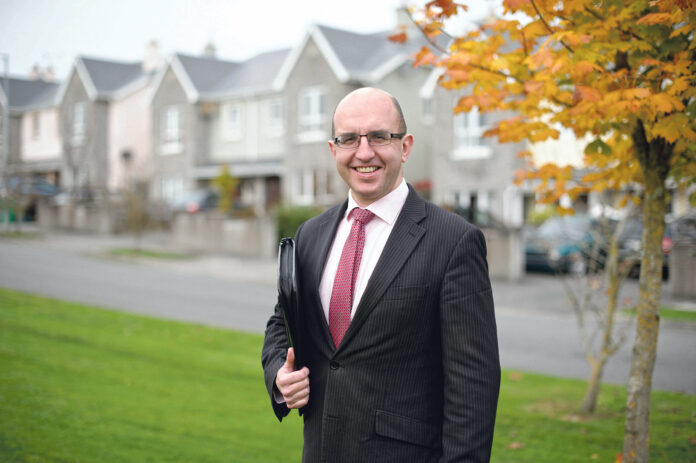A TOTAL of 1,264 houses were sold at market value in Clare last year, according to figures from the CSO, with an average price of almost €217,000, according to figures from the Central Statistics Office.
The average price increased by €26,000 compared to 2020, with the market soaring in Clare.
The median price (half buyers paid more and half less than this figure) is sometimes seen as a better barometer of affordability and it was €195,000 in 2021, up by €10,000 on the 2020 figure.
With the market very strong again, it is a huge contrast from the recession years. Over €274 million was spent on market-value transactions in Clare last year, compared to just €62.5 back in 2011.
The mean sale price in Clare in 2014 was less than €114,000, not much more than 50% of last year’s figure.
Auctioneer Diarmuid McMahon said that there is very little stock available within Clare, and with remote workers moving here, there is a big squeeze.
“Demand is very, very strong and supply is very, very low, it’s as simple as that. There had been a view that with everything that’s happening over the last couple of months that it might soften but it just hasn’t.”
“I think we’re at historic low levels of stock availability and that’s putting pressure on across the board.
“Along with Covid there have been really big shifts in how people are working and where they’re working from and it’s given an ability for people originally from Clare who were working in other parts of the country to locate themselves here, regardless of where there employment is based.
“A few things have all come together and it’s putting pressure on in terms of demand.
“On the supply side it’s very challenging to get stock, we’re very busy with the houses that we have to sell, we could get more there, that’s where the challenge is.”
Those seeking to buy privately are also facing a challenge from the State, as many of the houses that are being built are not available to them.
“I think there are about 250 houses under construction in the town of Ennis at the moment and the vast, vast majority of them are for social and affordable housing. Only a very small amount of them are available on the private market.
“Now, if you’re a private buyer you’re competing against the State, local authorities are under huge pressure for housing as well and everyone is competing for the same small pool of available houses.”
The well documented shortage of construction materials is another problem, he says.
“Albeit that there’s money out there, albeit that there’s demand out there, there’s very considerable insecurity in terms of cost, so it’s very hard for construction companies to commit to projects or price projects or budget for projects when they don’t know what their costs are going to be.
“Unfortunately it’s very difficult to see how that’s going to change in the short term. I’ve spoken to some people who might have been building a house themselves, and they’ve said they’re going to wait 12 months to see where costs are going to go.”
While prices are rising steeply, he feels it is quite different to the Celtic Tiger property price boom.
“In the Celtic Tiger era prices were very much driven by ludicrous amounts of cheap debt, but there were much bigger volumes. The volumes are much smaller now because of the lack of availability of stock. The balance sheet of the people who are buying is an awful lot stronger than it was then.”
He said that restrictions imposed by the Central Bank have had an impact.
“They’re making sure that people don’t borrow more than they should and people are coming to it (the market) with an awful lot of savings.
“There’s an awful lot of money on deposit in the country, there’s people who have that money and they’re being prudent.”
Owen Ryan has been a journalist with the Clare Champion since 2007, having previously worked with a number of other publications in Limerick, Cork and Galway. His first book will be published in December 2024.


